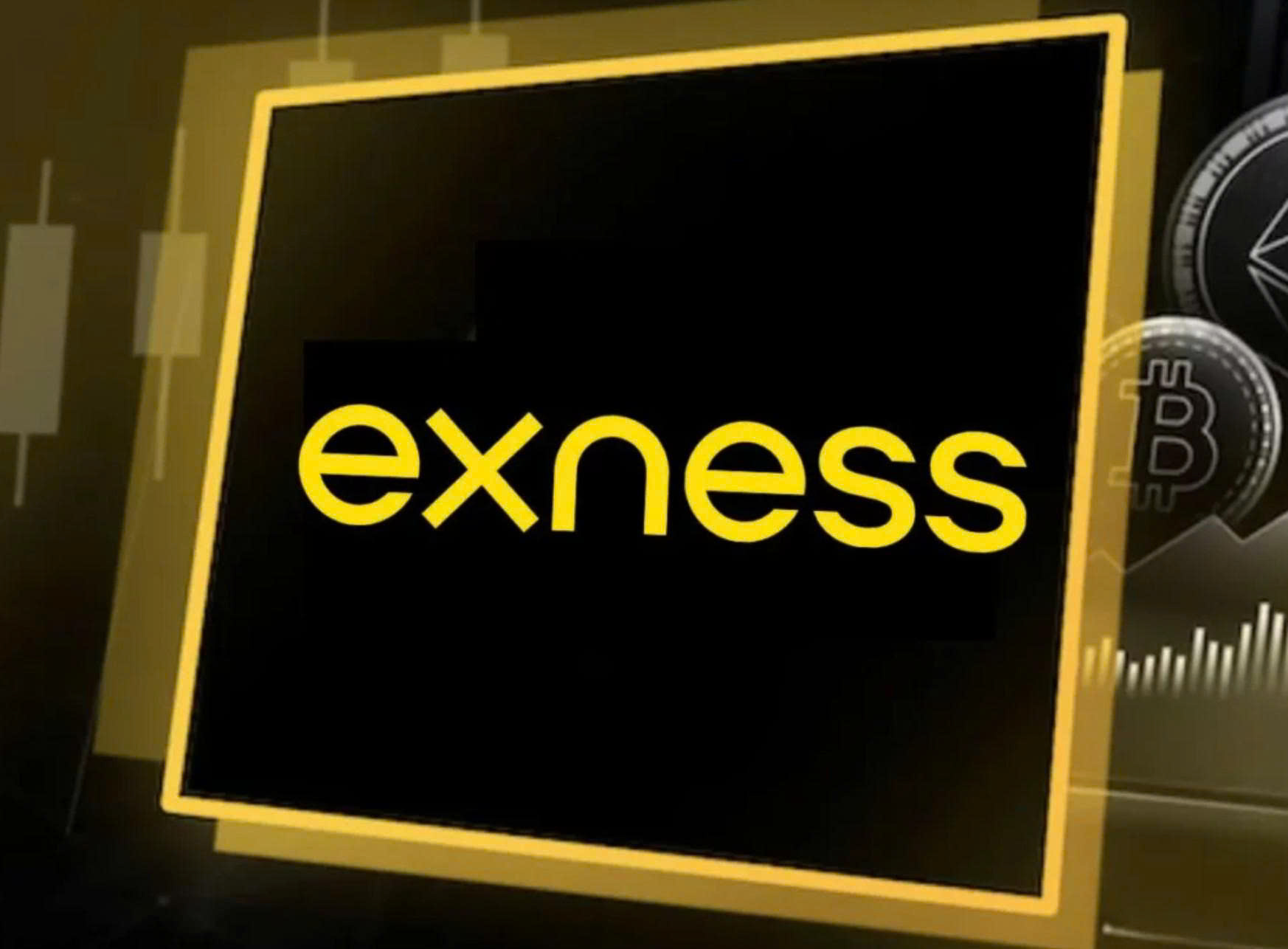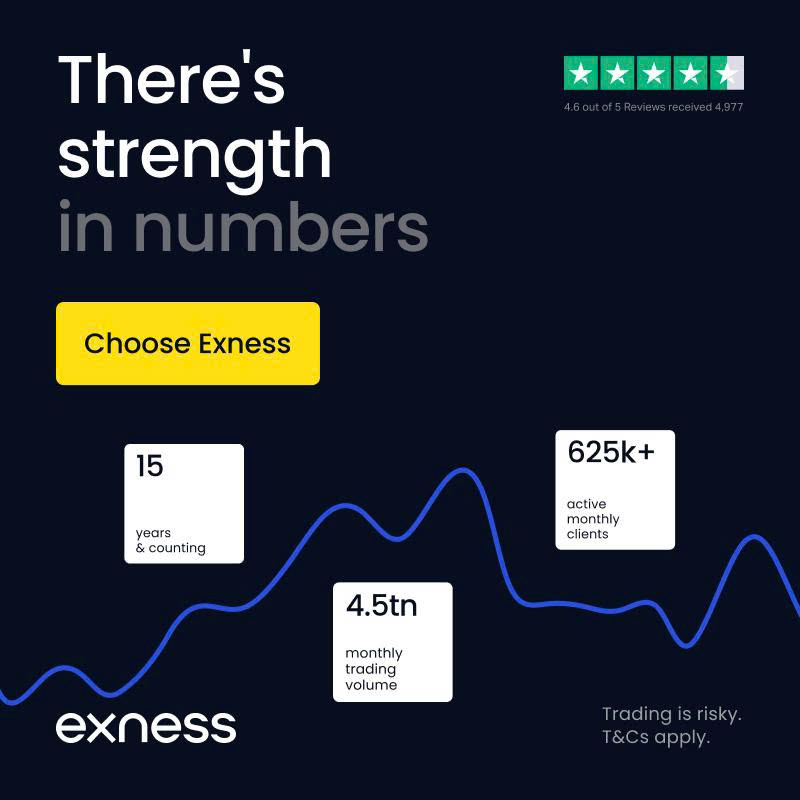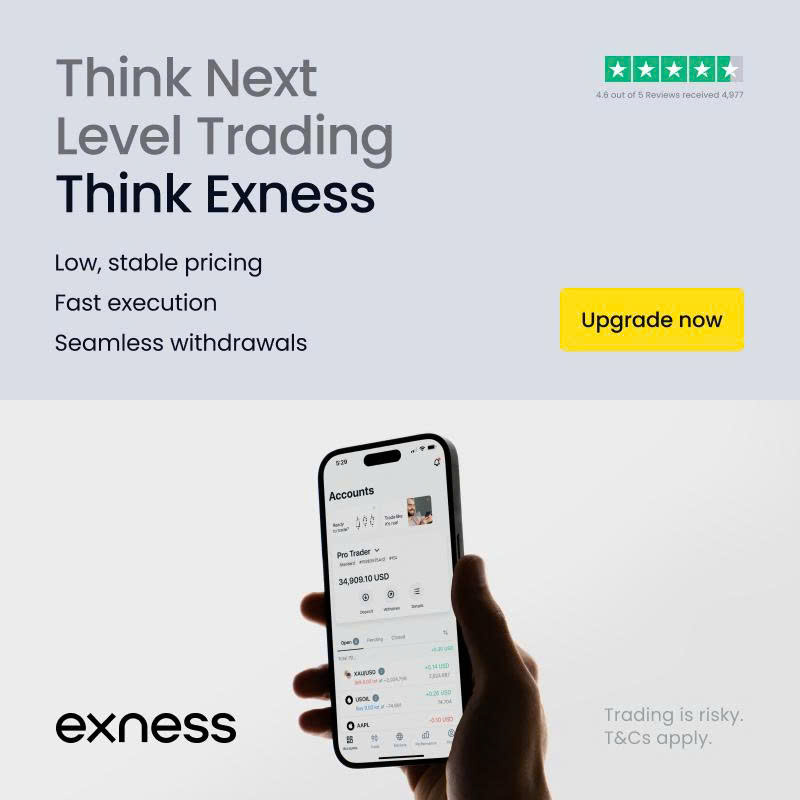
8 minute read
Exness vs Hantec: Which Forex Broker Should You Choose in 2025?
from Exness, Hantec
If you’re torn between Exness vs Hantec Markets for your forex trading journey, you’re not alone. Both brokers have built solid reputations, but they cater to different types of traders. In this article, I’ll break down their key differences and similarities to help you decide which one suits your trading style, budget, and goals in 2025. Let’s dive in!

✅ Trade with Exness now: Open An Account or Visit Brokers 👈
Why Compare Exness vs Hantec Markets?
Choosing the right forex broker can make or break your trading experience. Exness vs Hantec Markets are both well-regarded, but they offer distinct features, fees, and platforms. Exness is known for its ultra-tight spreads and global reach, while Hantec Markets shines with strong regulation and fixed spreads. By the end of this article, you’ll know which broker aligns with your needs—whether you’re a beginner, a scalper, or a long-term trader.
Overview of Exness vs Hantec Markets
Exness: The Global Giant
Founded in 2008, Exness is a Cyprus-based broker with a massive global presence, serving over 1 million active traders and processing monthly trading volumes exceeding $4 trillion. It’s regulated by top-tier authorities like the FCA (UK) and CySEC (Cyprus), ensuring high trust and security. Exness is celebrated for its low-cost trading, flexible account types, and advanced platforms like MetaTrader 4 (MT4) and MetaTrader 5 (MT5).
Hantec Markets: The Veteran Broker
Established in 1990, Hantec Markets is a seasoned player headquartered in Hong Kong, regulated by the FCA and ASIC. With over 30 years of experience, it’s a go-to for traders seeking reliability and fixed spreads. Hantec Markets focuses on a secure trading environment and customizable platforms, also supporting MT4 and MT5, though with some limitations.
Key Comparison Points: Exness vs Hantec Markets
Let’s cut to the chase and compare these brokers across critical factors: regulation, account types, fees, platforms, trading instruments, and customer support.
1. Regulation and Security
Trust is non-negotiable when choosing a broker. Both Exness vs Hantec Markets score high here, but their regulatory frameworks differ slightly.
Exness: Regulated by FCA, CySEC, FSCA (South Africa), and FSA (Seychelles). It offers negative balance protection, segregated client funds, and investor compensation schemes in certain jurisdictions. Its transparency, like publishing historical price data, adds an extra layer of trust.
Hantec Markets: Also regulated by FCA and ASIC, two of the strictest authorities. It provides negative balance protection and segregated accounts but doesn’t advertise investor compensation as prominently as Exness.
Verdict: Exness edges out slightly due to its broader regulatory coverage and explicit negative balance protection. However, Hantec Markets is equally trustworthy for traders prioritizing FCA and ASIC oversight.
2. Account Types and Minimum Deposits
Your trading style and budget will dictate which account types work best for you.
Exness: Offers a variety of accounts to suit all traders:
Standard Account: Starts at just $1, perfect for beginners.
Standard Cent Account: Ideal for newbies testing with smaller lots.
Pro Account: Starts at $200, designed for experienced traders with tighter spreads.
Raw Spread and Zero Accounts: For high-volume traders, with spreads from 0.0 pips and low commissions.
Islamic Accounts: Swap-free options for all account types.
Hantec Markets: Provides fewer options but still versatile:
Standard Account: Minimum deposit of $100, great for beginners.
Pro Account: Aimed at seasoned traders with lower spreads and faster execution.
Islamic Account: Swap-free for Sharia-compliant trading.
Verdict: Exness wins for flexibility, especially with its ultra-low $1 minimum deposit and cent accounts for beginners. Hantec Markets is better for traders who prefer simpler account structures.

✅ Trade with Exness now: Open An Account or Visit Brokers 👈
3. Fees and Spreads
Trading costs can eat into your profits, so let’s look at how these brokers stack up.
Exness: Known for variable spreads, which can be as low as 0.0 pips on Raw Spread and Zero accounts, though these come with commissions (e.g., $2 per side for certain instruments). Standard accounts have slightly higher spreads but are commission-free. Deposits and withdrawals are free in most cases.
Hantec Markets: Offers fixed spreads, which provide predictability but are generally higher than Exness’s variable spreads. Pro accounts may include commissions, but Hantec Markets doesn’t charge deposit or withdrawal fees, making fund management cost-effective.
Verdict: Exness is the better choice for active traders seeking ultra-low variable spreads, especially scalpers. Hantec Markets suits traders who value fixed spreads for budgeting purposes.
4. Trading Platforms
A broker’s platform can make or break your trading experience.
Exness: Supports MT4, MT5, social trading, and a proprietary web-based terminal. Its platforms are highly customizable, with fast execution speeds (averaging under 25ms) and integration with tools like TradingView and Trading Central.
Hantec Markets: Also offers MT4 and MT5 but with a catch—both are limited to a 30-day trial unless you maintain an active account. This restriction can be a hassle for traders who rely on these platforms long-term.
Verdict: Exness takes the lead with its unrestricted access to MT4/MT5 and additional platforms like social trading and web terminals. Hantec’s 30-day platform limit is a drawback.
5. Trading Instruments
Diversifying your portfolio is key to managing risk. Here’s what each broker offers.
Exness: Provides a wide range of instruments, including forex, CFDs on stocks, indices, commodities, metals, energies, and cryptocurrencies. This makes it ideal for traders looking to explore multiple markets.
Hantec Markets: Supports forex, gold, silver, spread betting, and cryptocurrencies. While it covers the essentials, its range is narrower than Exness’s, lacking CFDs on stocks and indices.
Verdict: Exness is the clear winner for traders wanting a broader selection of assets to diversify their portfolios.
6. Customer Support
When things go wrong, you want reliable support.
Exness: Offers 24/7 support via live chat, email, and phone in 15 languages, including English, Chinese, and Arabic. Its FAQ and help center are robust, and response times are generally fast.
Hantec Markets: Provides support through email, phone, and live chat, but availability isn’t 24/7. Some users have reported slower response times, particularly for non-English support.
Verdict: Exness excels with its round-the-clock, multilingual support, making it more accessible for global traders.
7. Educational Resources
For beginners, education is critical to building confidence.
Exness: Features Exness Academy with video lessons, webinars, and articles covering technical analysis, risk management, and more. Its YouTube channel and blog provide additional insights.
Hantec Markets: Offers limited educational resources, primarily basic guides and market updates. It lags behind competitors in this area.
Verdict: Exness is far superior for beginners and traders seeking to upskill, while Hantec Markets falls short.
Pros and Cons at a Glance
Exness
Pros:
Ultra-low spreads (from 0.0 pips) and low commissions.
Wide range of account types with a $1 minimum deposit.
Extensive trading instruments, including stocks and crypto.
24/7 multilingual support and robust educational resources.
Top-tier regulation (FCA, CySEC).
Cons:
Limited educational resources compared to some competitors like eToro.
Unavailable for retail traders in certain regions (e.g., US, UK).
Hantec Markets
Pros:
Fixed spreads for predictable costs.
Strong regulation (FCA, ASIC).
No deposit or withdrawal fees.
Supports scalping and hedging strategies.
Cons:
Limited trading instruments compared to Exness.
30-day trial limit on MT4/MT5.
Weaker educational resources and customer support.
Who Should Choose Exness?
Exness is ideal for:
Beginners: With a $1 minimum deposit and cent accounts, it’s perfect for those starting small.
Scalpers and Day Traders: Ultra-tight spreads and fast execution make it a top choice.
Diversified Traders: Its broad range of instruments suits those trading beyond forex.
Global Traders: 24/7 support in multiple languages caters to an international audience.
If you’re looking for flexibility, low costs, and a wide asset selection, Exness is hard to beat.
Who Should Choose Hantec Markets?
Hantec Markets is best for:
Risk-Averse Traders: Fixed spreads provide cost predictability.
Experienced Traders: Pro accounts with lower spreads and advanced strategies like scalping.
Regulation-Focused Traders: FCA and ASIC oversight ensure a secure environment.
If you prioritize fixed spreads and don’t need a vast array of instruments, Hantec Markets is a solid choice.
Final Thoughts: Exness vs Hantec Markets in 2025?
Both Exness vs Hantec Markets are reliable brokers, but they cater to different needs. Exness stands out for its low-cost trading, diverse account types, and extensive asset offerings, making it the better choice for most traders—especially beginners and scalpers. Hantec Markets, with its fixed spreads and strong regulation, is a great option for traders who value predictability and a secure environment but don’t mind fewer instruments or platform limitations.
Ultimately, your choice depends on your trading goals. If you want flexibility, low fees, and a global platform, go with Exness. If fixed spreads and top-tier regulation are your priorities, Hantec Markets is worth considering. Whichever you choose, always test with a demo account first to ensure it fits your style.
✅ Trade with Exness now: Open An Account or Visit Brokers 👈
Read more:

